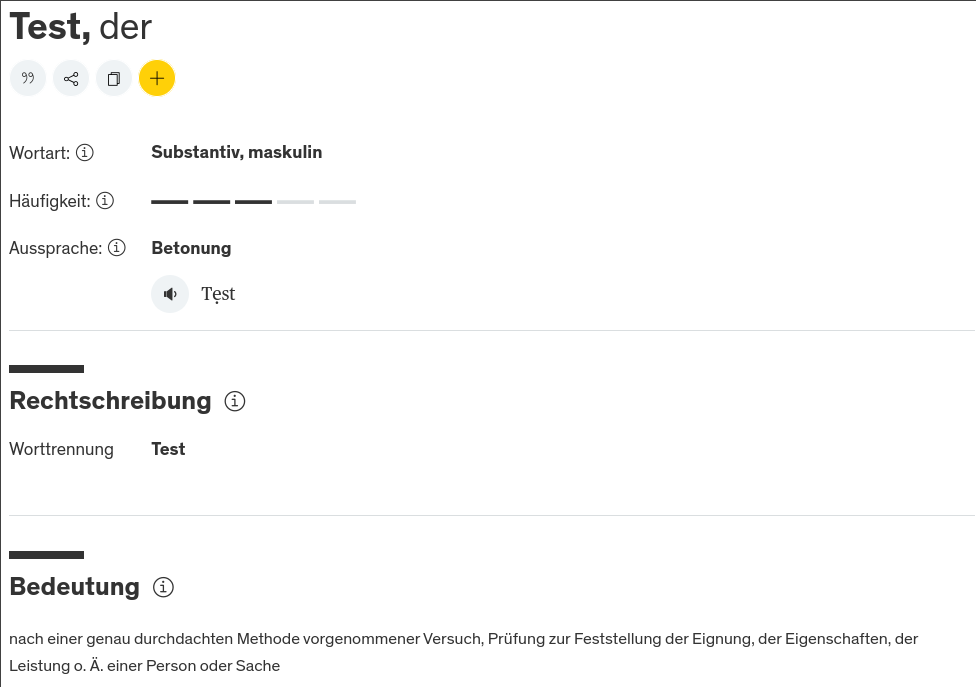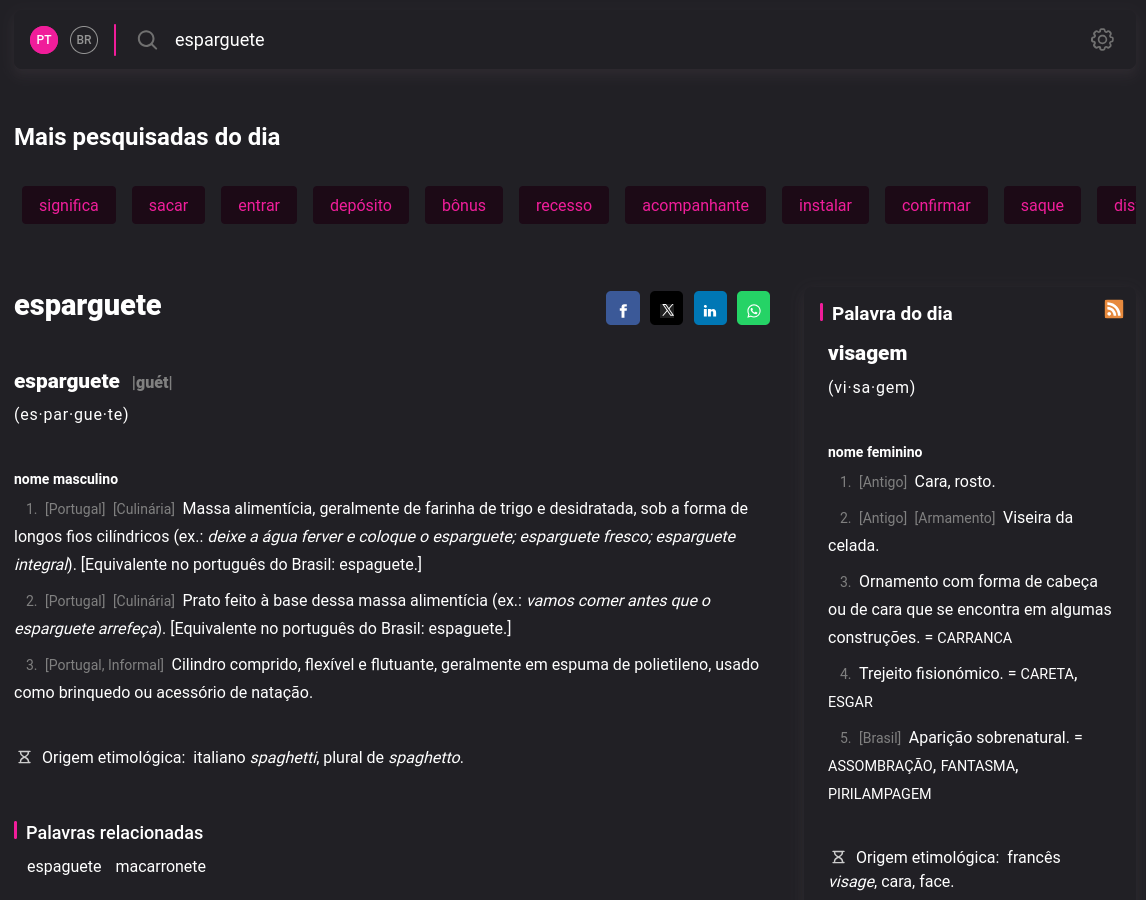Recently I’ve been having issues remembering certain words in German and Portuguese, as I don’t necessarily use them on a daily basis. My solution to this problem until now has essentially been:
At some point, having to open a browser, then enter the dictionary’s name, then enter the search term, then wait for the page to load, etc, became a bit tedious. So I wrote two short scripts (one for each language) that do all of that for me, then spit out the data I am looking for. Of course, there are also offline dictionaries for this kind of thing, but then I wouldn’t have a reason to write another post here.
dudencli scrapes https://duden.de/rechtschreibung, the online version of the classic Duden dictionaries. This is specially
useful to me, because I sometimes forget what gender some less-common words have, as well as their correct spelling.
The website also provides some other useful data that I don’t really use, such as synonyms, etymology, and
grammatical notes. Below you can see a short comparison of both the online dictionary as well as
dudencli’s output:


Similarly, cliberam uses https://dicionario.priberam.org/, a high quality portuguese online dictionary. One thing I would still like
to add would be an option to fetch the conjugations if available. But until then, this is what the script
returns:


This goes without saying, but none of this is sanctioned by either Duden or Priberam, so while I hope they can see it for what it is - a project intended to make using their services easier and more accessible, motivated by a student’s passion for scripting - I am at the mercy of their lawyers.
Please don’t sue me (-‿-“)
As usual, the scripts are available on codeberg (dudencli, cliberam) under GPLv3, so feel free to steal them (terms and conditions apply).